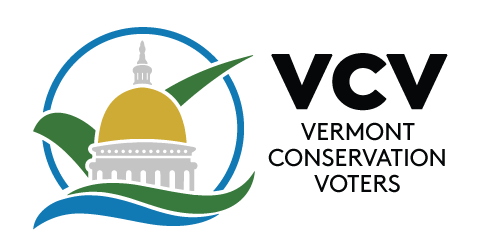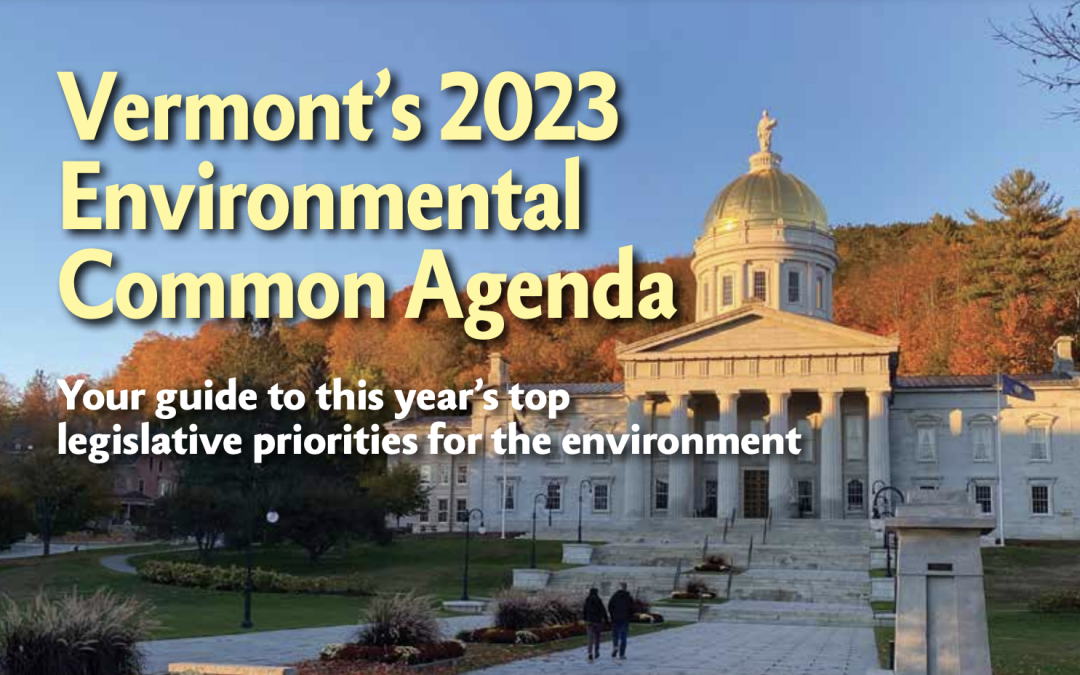Vermont Conservation Voters (VCV) has released the 2023 Environmental Common Agenda, which lays out this year’s top legislative priorities for the Vermont environmental community. VCV releases the Common Agenda each legislative session in partnership with other advocacy organizations across the state. This year, 17 organizations participated in the process of developing and setting the agenda. This year’s Environmental Common Agenda puts forward critical solutions to help address some of the most pressing issues facing our state— in particular, the ongoing and worsening climate crisis, and the need to support more efficient, equitable, and clean ways to heat our homes, get where we need to go, and generate our electricity. Vermont also needs to foster more climate resilient communities by supporting smart growth housing development paired with better protections for our waters, wetlands, and forests. “We must address the climate crisis by implementing Vermont’s Climate Action Plan as swiftly and equitably as possible,” stated Lauren Hierl, Executive Director of Vermont Conservation Voters. “Policies identified in the plan will help Vermonters and local businesses have cleaner and more affordable alternatives to heat and power their buildings, get where they need to go, and identify action steps to shape land use and development that store carbon, enhance our climate resilience – and, critically, to help address the housing shortage using smart growth solutions.” Specifically, we are calling on Vermont lawmakers to:
- Implement the Climate Action Plan to cut pollution, save Vermonters money, protect public health, and create good-paying union jobs by:
- Adopting an equitable and accountable Affordable Heating Act;
- Updating the Renewable Energy Standard to achieve 100% renewable energy and ensure development of significantly more new renewables; and
- Investing in clean transportation and mobility solutions, environmental justice, and other critical climate initiatives.
- Build a more climate-resilient Vermont by implementing smart growth housing solutions, while better protecting our valuable forests, waters, and wetlands.
- Promote a healthier Vermont by:
- Banning toxic chemicals like PFAS from personal care products and textiles;
- Reducing plastic waste by modernizing the Bottle Bill; and
- Promoting a healthy democracy.
Justin Marsh, Political Outreach Director of Vermont Conservation Voters, added, “We are grateful to our members and activists across the state for their continued work for climate justice and environmental action, and making their voices heard on these important issues. The Common Agenda is just one outcome of our ongoing partnerships in the environmental community, and we’re honored to be releasing it to the public, as well as the Vermont legislature. Moreso, I’m excited to be advocating for these pro-environment policies at the State House this year.” Lawmakers and advocates are convening this week to walk through the agenda and discuss the top priority environmental issues. The recording will be posted on the VCV website. The 2023 Environmental Common Agenda can be found here. The Environmental Common Agenda is a project of Vermont Conservation Voters, with participation from the following partner organizations: Audubon Vermont, Connecticut River Conservancy (CRC), Conservation Law Foundation (CLF), Lake Champlain Committee (LCC), Preservation Trust of Vermont, Renewable Energy Vermont (REV), Rights & Democracy (RAD), Slingshot, 350VT, The Trust for Public Land (TPL), Vermont Businesses for Social Responsibility (VBSR), The Vermont Climate & Health Alliance, Vermont Chapter of the Sierra Club, Vermont Conservation Voters (VCV), Vermont Interfaith Power & Light (VTIPL), Vermont Natural Resources Council (VNRC), Vermont Public Interest Research Group (VPIRG)

